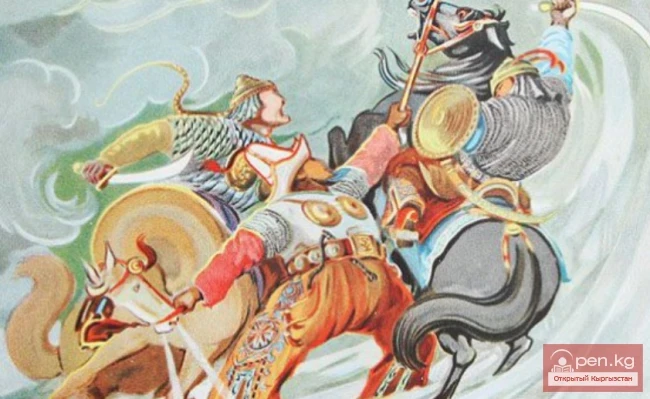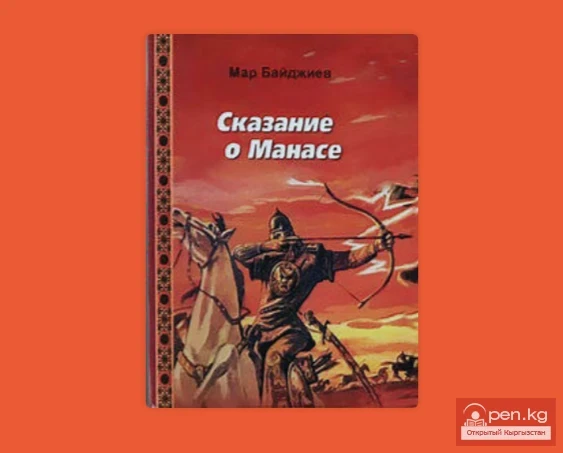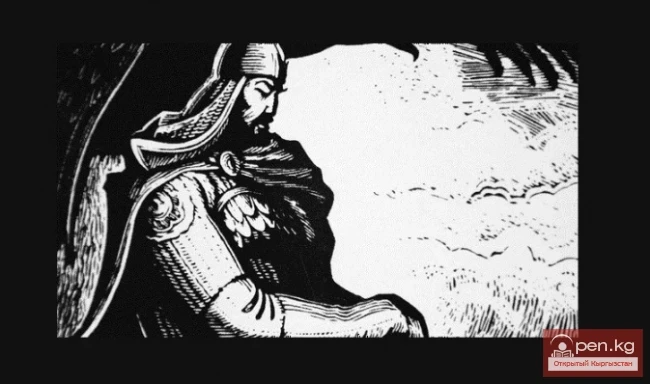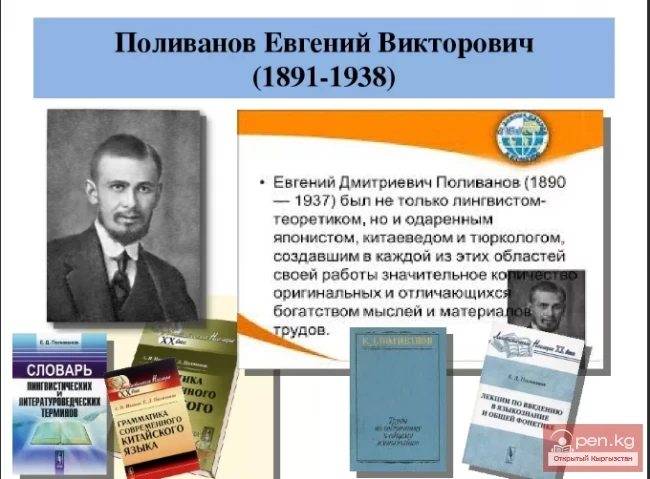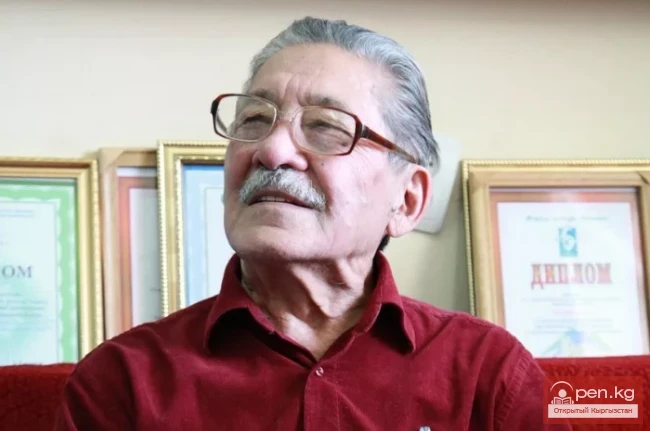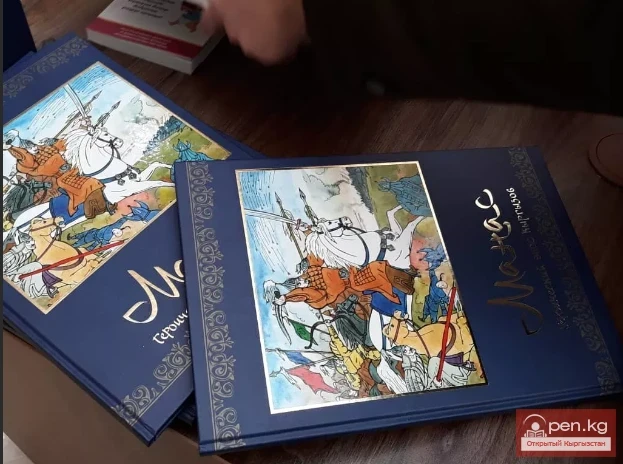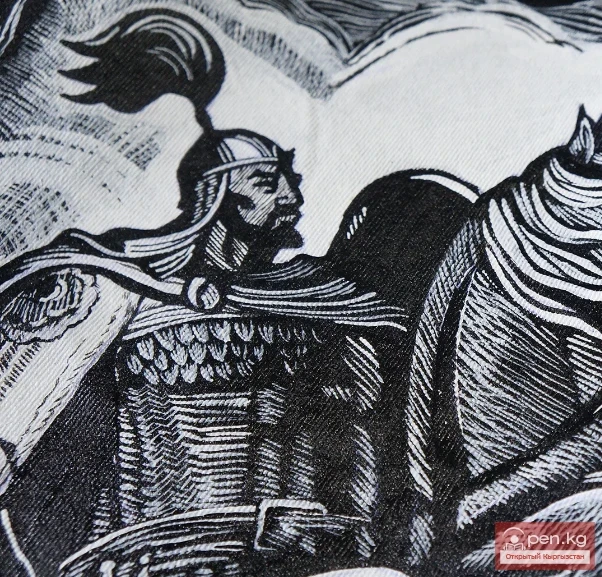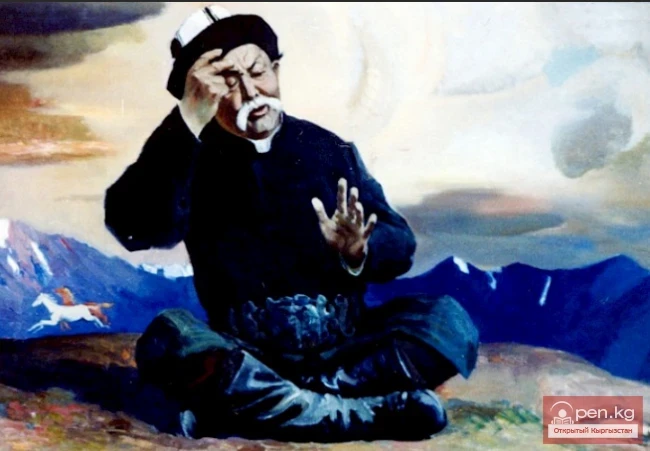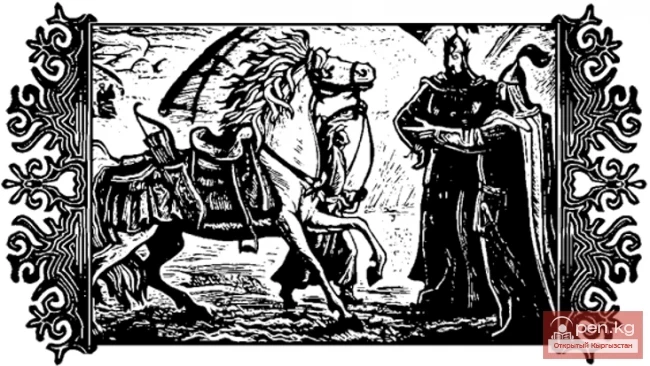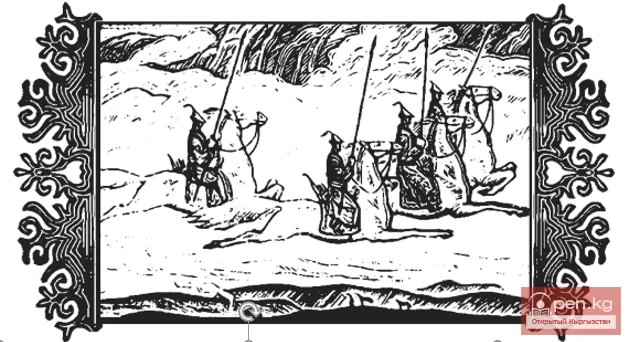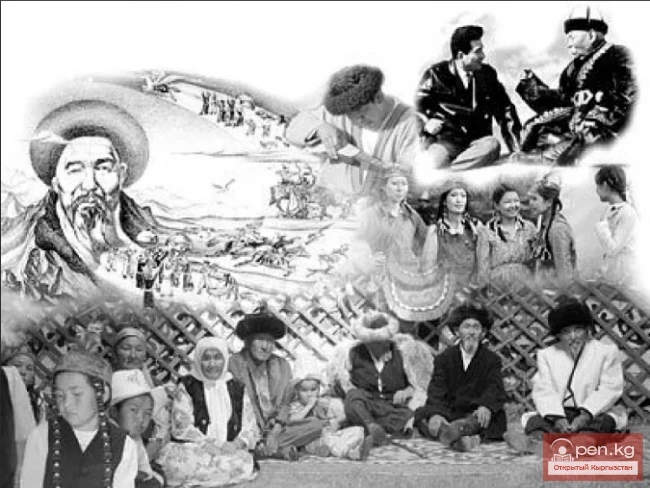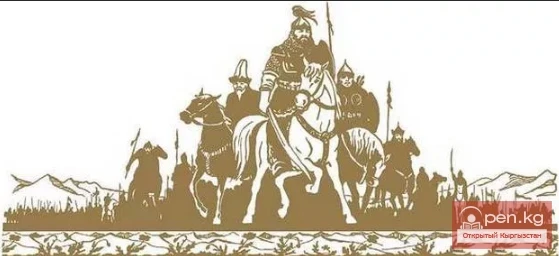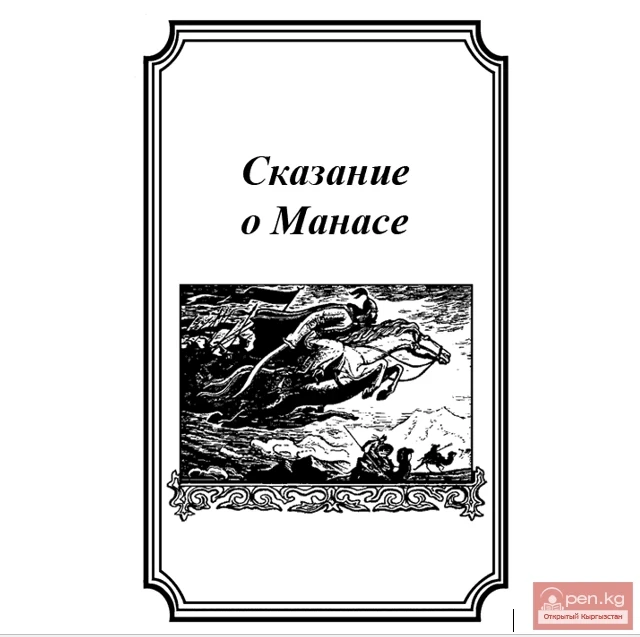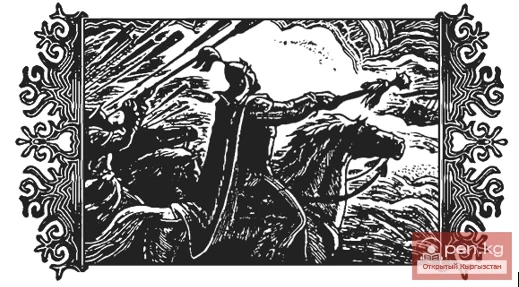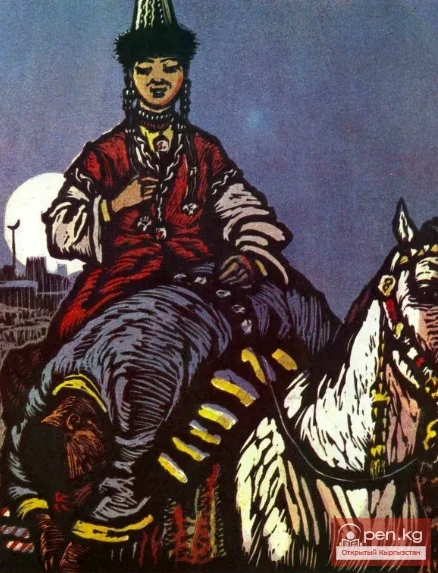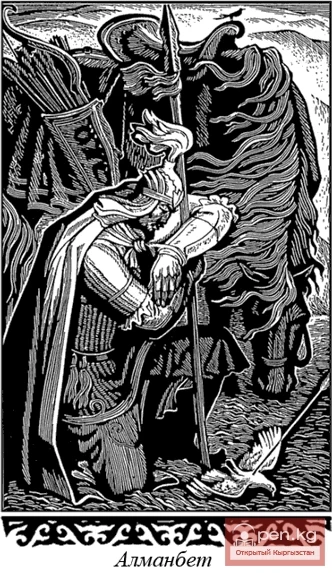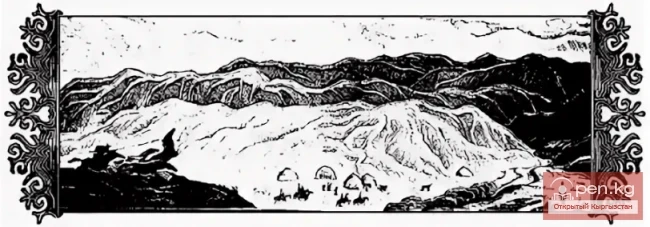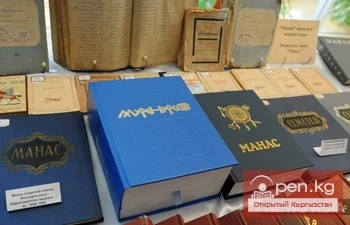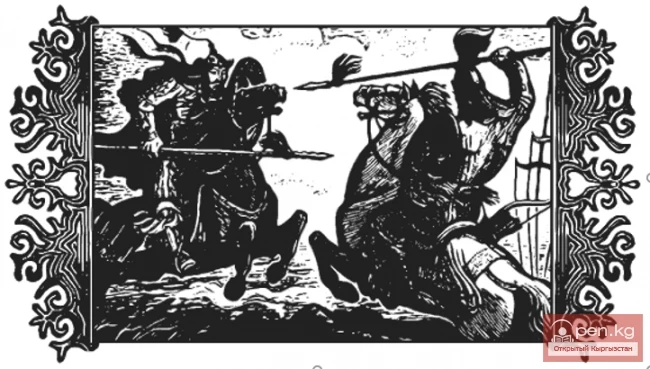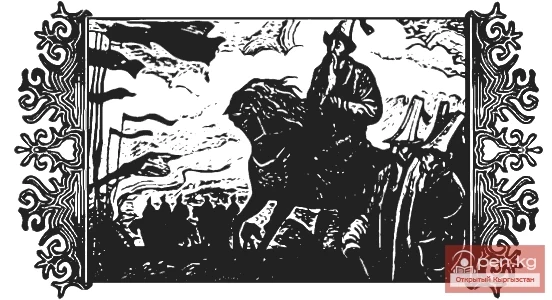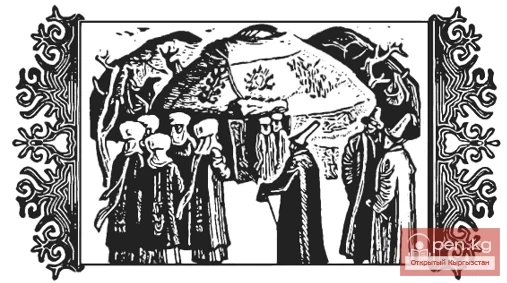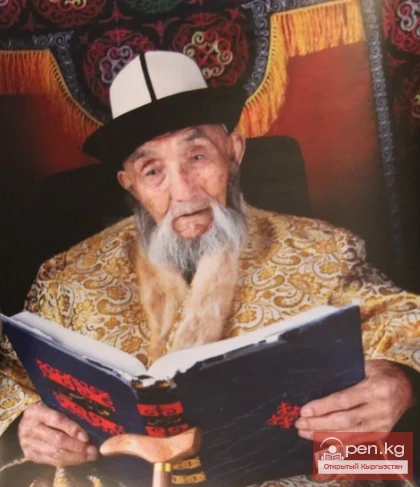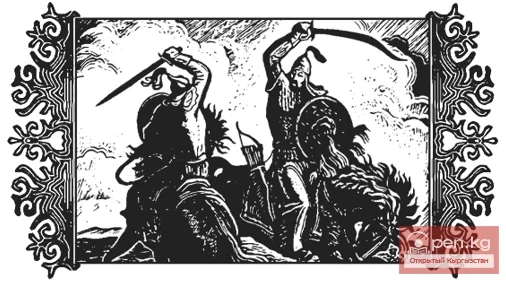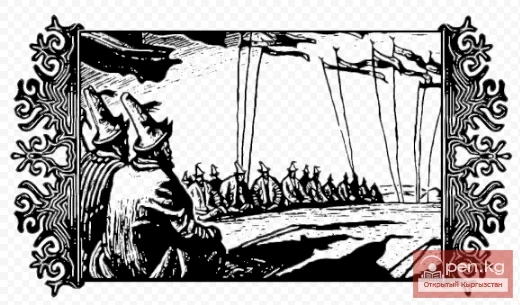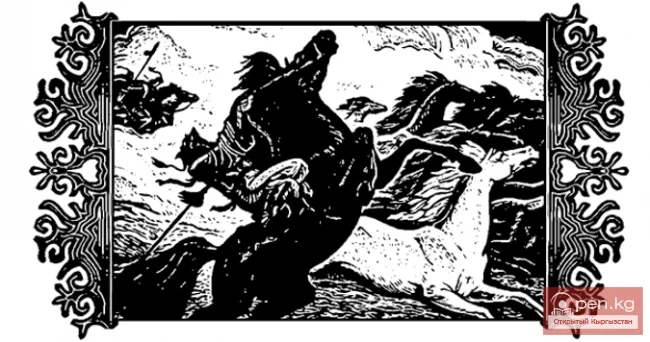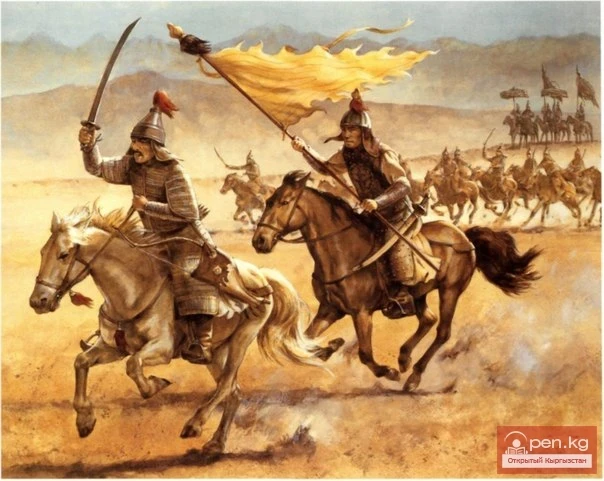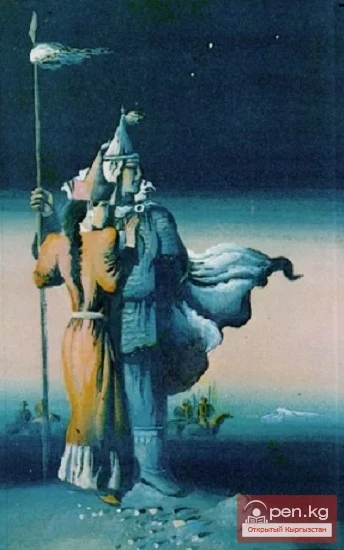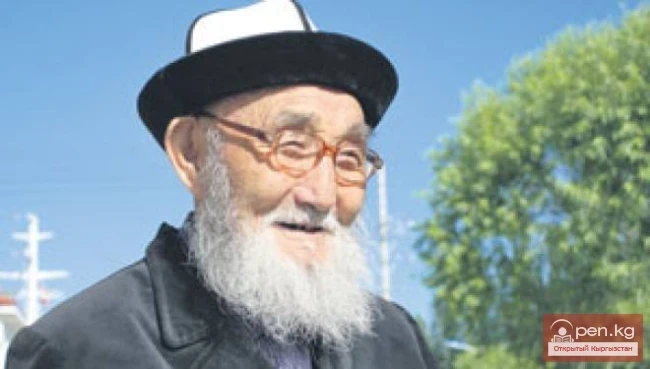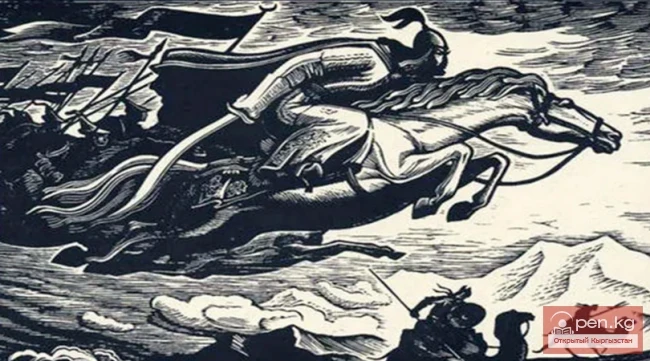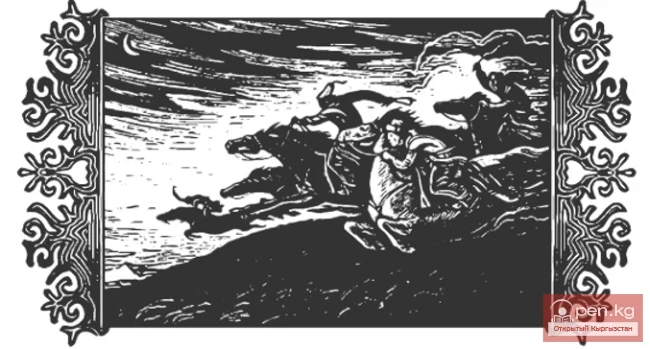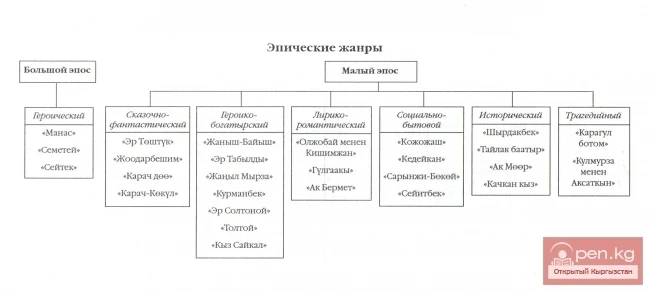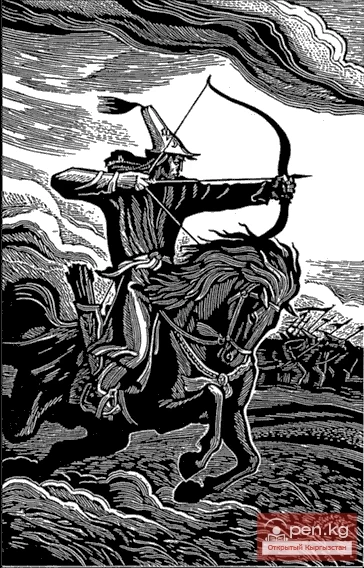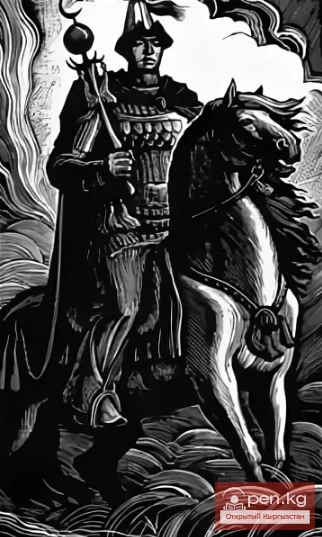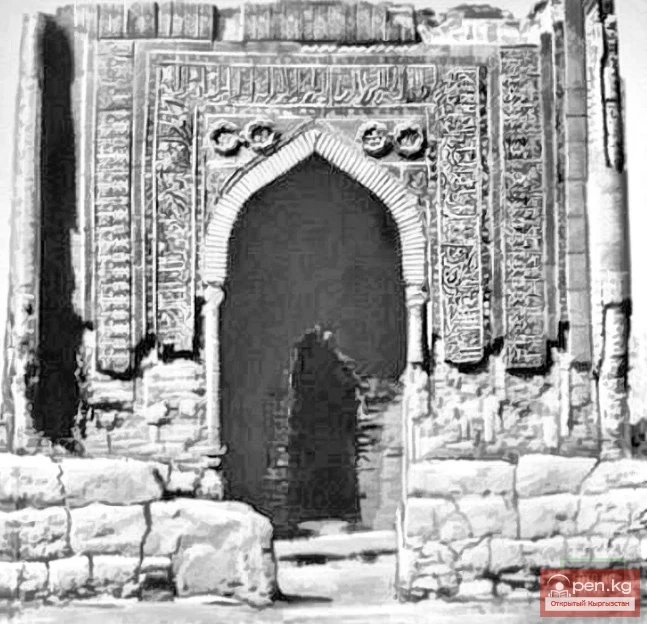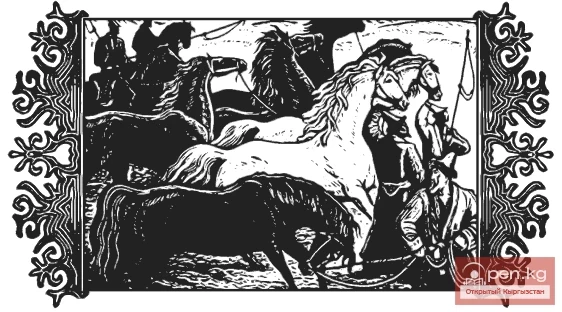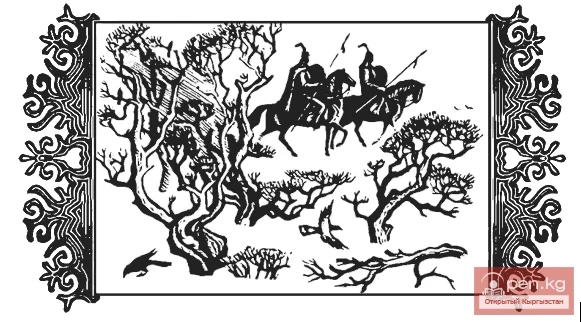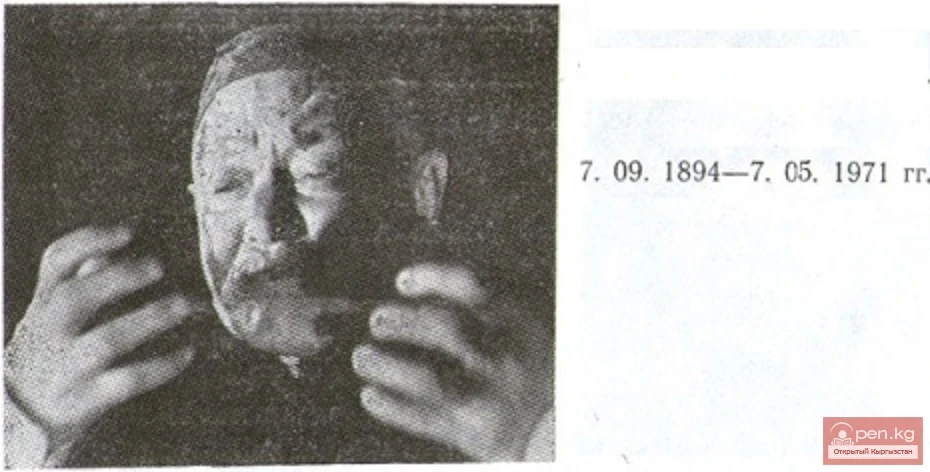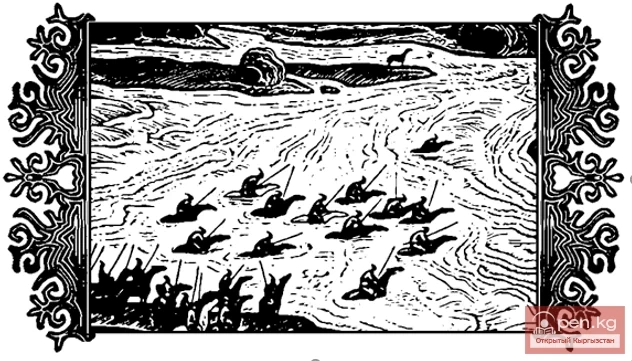The Epic "Manas" — A True Encyclopedia of Kyrgyz Life in Historical Time
In "The Tale of Manas" by M. Baidzhiev, there are many monologues, sought out by the experienced hand of the playwright. Some of them (Kanykey's appeal to Almanbet before the Great Campaign, Almanbet's monologue upon encountering his territory, Manas's prayer, Manas's last will) are perceived as independent excerpts of text.
At the same time, M. Baidzhiev, as a playwright, shows an increased enthusiasm for dialogue, which in drama is considered the main means of shaping actions and the primary method of describing morals. Dialogue, as a dramatic element in the structure of the epic creation, reduces narrativity, dramatizes the story, and stimulates the reader's creative imagination. In dialogue, a battle of characters occurs, and in "Manas" there are dozens of heroes, endowed with character traits (Manas, Kanykey, Jakyp, Bakai, Almanbet, Chubak, Syrgak, Konurbai, Zholoy, and others).
Dialogues are often presented without accompanying words — as on stage, and this is also accepted as a revolutionary method.
The epic "Manas" is a genuine reference book of Kyrgyz existence in the historical period. It reflects all aspects of the people's life in a broad sense: ethnic composition, social structure, state psychology, moral norms, religious beliefs, philosophical views, aesthetic tastes, material and spiritual culture. Hence, as a consequence, there is a realistic description of reality, equivalent to the representation of everyday truth.
M. Baidzhiev, the creator of the literary work, extends the principles of life-true representation to the heroes of the epic, which is why they appear not only as mythological heroes but also as active, individualized personalities. In "The Tale of Manas," one can trace how the character of the main hero is expressed in various life situations: in daily existence, in military operations, in heroic battles, in moments of his joy, rage, and despair. This same principle of typification — folkloric in its foundation, but truthful in local manifestations — extends to other heroes, primarily the positive ones.
A traditional feature of the epic "Manas" is in the organizing significance of the narrative, which is led by the storyteller-manaschi as the bearer of speech. In "The Tale of Manas," such a figure is the author, who imposes his personal mark on the highly artistic world of the work. M. Baidzhiev, preserving the traditional form of storytelling for the epic, enriches it with a progressive form of indirect narration, based on the principle of demonstrating events through the perception and attitudes of the acting characters.
With a light step, like a doe,
With a proud and straight posture,
Akylai came forth.
Indeed a goddess! Pray if you wish!
Approaching Manas closely,
With a languid smile in her eyes,
The beauty lowered her gaze.
And then the hero Manas realized,
That the young girl's languid look
Was a declaration of love.
The form of indirect narration also helps M. Baidzhiev in solving other artistic tasks, which he defines as his further role:
“...I want to deepen the psychological aspect, restore missed nuances, preserve humor”
(“The Word of Kyrgyzstan,” June 20, 2008).
To this list, one can add another task — to bring the traditional hyperbole of the epic into artistic balance with life-like — realistic depiction. A vivid example is the epic image of Manas through the perception of his beloved Sanirabigi, who became his wife under the name Kanykey.
And it seemed to her then,
That the hero Manas was created
From gold and silver,
From the heights of the heavens,
From the warm kindness of the earth.
And he shines from within,
Like the sun of the morning dawn,
Shining in the midnight gloom,
Like the clear moon in the sky.
And he moves towards his goal,
Like an ocean wave.
Born from the cloud of the heavens,
Manas was a wonder of wonders!
And words are not enough to explain
At that moment, when in your heart
Love trembles with flame!
8 thousand lines of "The Tale of Manas" by M. Baidzhiev
